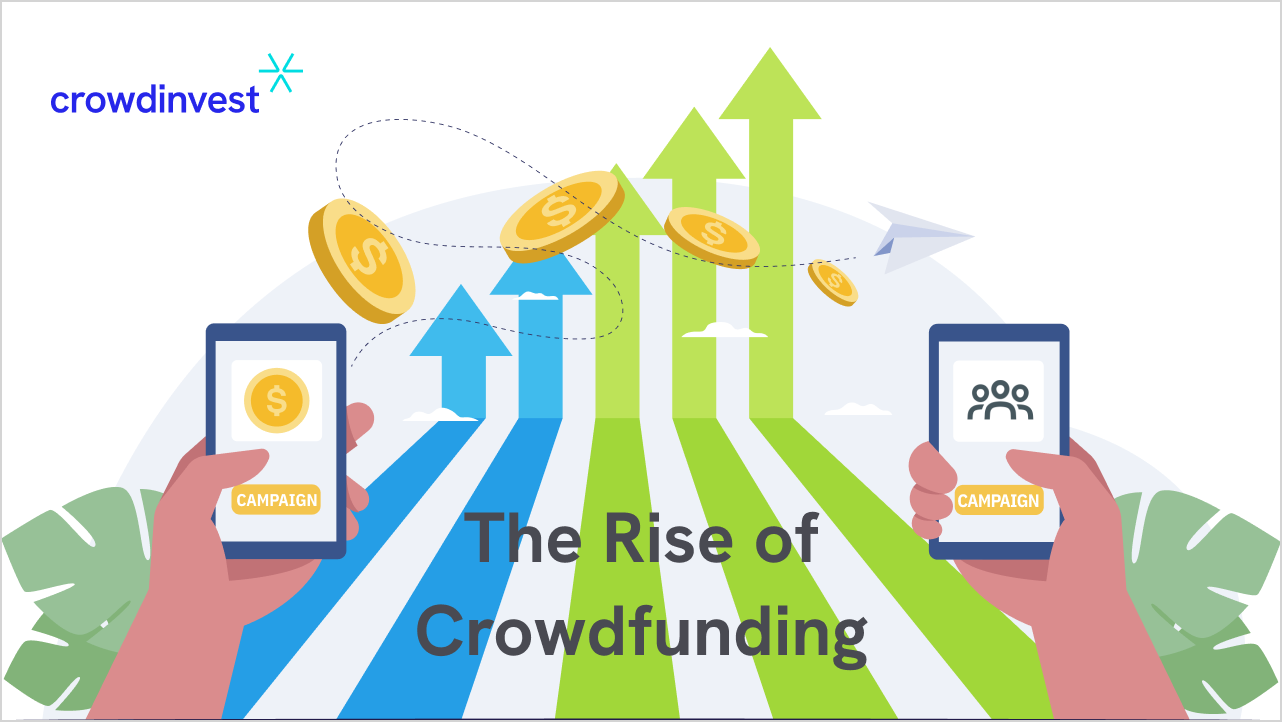As the world progresses toward becoming more egalitarian and inclusive, crowdfunding is emerging as the way forward to democratizing funding. Over time as technology has become more accessible, the popularity of crowdfunding campaigns has gone up all around the world, with crowdfunding being used by a variety of different entities with different aims. Let's take a look at the diverse effects of crowdfunding around the world.
Impact-based Crowdfunding in India
India currently has impact-based crowdfunding as the primary type of crowdfunding being used on various digital platforms. With the rise of access to digital payments, crowdfunding campaigns on the internet are gaining popularity as well. The Charities Aid Foundation, in their report ‘India Giving 2021’, observes that digital donations have gone up from 28% to 44% from 2019 to the present day. A large number of people are warming up to the effectiveness of Crowdfunding. In fact, in 2021, Ketto (Ketto is an Online Crowdfunding Platform and Website in India for fundraising Social, Charity, Movies, Music, Personal and Creative causes.) reported a 300% increase in first-time donors to crowdfunding campaigns. Showing that as digital payments became more accessible, crowdfunding was able to see a much larger rate of participation.
Reward-based crowdfunding in India
With the popularity of crowdfunding platforms in the charity segment, reward-based campaigns are slowly becoming more commonplace as well. Reward-based campaigns have diverse origins, with everyone, right from students and artists to inventors, using them to bankroll projects. Startups are also using these campaigns for various reasons, including reducing their customer acquisition costs.
Crowdfunding as the means of making a change
In order to empower the underfunded women founders of India, a large MNC felt crowdfunding was the best way to go. On the occasion of Women's day, Brittania launched crowdfunding campaigns for 5 homemakers-turned-entrepreneurs with award-winning businesses. This is a testament to the fact that large Multi-National corporations are not just acknowledging Crowdfunding as a force to be reckoned with but the most progressive way forward. We have previously pointed out how crowdfunding could help female founders get their due share of funding as well.
Debt-based crowdfunding
Debt is the instrument of choice for founders that are unwilling to give up equity. Why would peer-to-peer lending be a choice, one wonders? The answer lies in the ease of obtaining loans from institutions or, rather, the lack of ease. After the great recession of 2008, major banks have taken hits, and capital adequacy norms have been implemented as the new norm. The effect of this is felt directly by startups since banks are restricted from lending to them, citing SME ventures to be too risky. For retail investors, direct loans are a good asset to diversify into, one that can bring them up to 12% interest. Data from the University of Cambridge Judge Business School points out that in 2020 the most successful form of crowdfunding in terms of money raised is peer-to-peer consumer lending, with $195.3 billion.
Equity crowdfunding
Equity crowdfunding is rising in terms of value quietly but steadily. All around the world, founders of startups are understanding the feasibility of equity crowdfunding, and since the year 2019, many big VCs have also led crowdfunding rounds, according to Forbes.
$100 million was raised through equity crowdfunding in 2019, this number was quadrupled by 2021, and by 2025, the crowdfunding market is predicted to grow by nearly $200 billion, with a compound annual growth rate of over 15%. With rumours of a Funding Winter from conventional sources, equity crowdfunding may be the best way of bridging the gap between startups and the investment they need.
Why crowdfunding is the way forward for startups
- Crowdfunding gives founders an idea of how the market perceives their brand in terms of value and demand.
- Crowdfunding campaigns offer more than just funding, it helps the brand gain awareness and traction from the market they will be targeting.
- 78% of Crowdfunding campaigns don’t just meet the target but exceed them.
- Democratising a startup ensures that it is not stuck to limited vested interests.
- Participants in crowdfunding campaigns, irrespective of the type, will feel a sense of ownership and, as a result, will be long-term customers.
- Crowdfunding can be a means to educate a broad audience about the value provided by the startup.
- Crowdfunding is a good way to reach out to a young crowd of investors since the average age of a person funding campaigns is between 24 and 35, according to information provided by Fundly.
Filling in the gaps
The Co-founder of Ketto Zaheer Adenwala rightfully points out that the fate of the crowdfunding industry will be determined by regulatory measures and the adaption of technology. The need for transparency and security is also identified within the crowdfunding industry. We at Crowdinvest are a web 3.0 application and will use cutting-edge technology like artificial intelligence to ensure that these factors are duly taken care of. Our due diligence process, for example, will be done through the usage of blockchain technology. As a startup that is aligned with the 17 SDGs of the UN, we are focused on making sure the funds are used by businesses that are going to make an impact. #
About Us
CrowdInvest is a cross-border equity crowdfunding platform offering UK-based sophisticated investors opportunities to invest in impact-driven, high-growth tech startups from emerging markets. Fundraisers will be able to consider how to employ any of these other added benefits of crowdfunding that we have outlined here, plus the major benefit of acquiring customers as well as raising investment funding. You can join the waitlist today at https://www.crowdinvest.com/ to stay up to date with developments on how to be involved.


